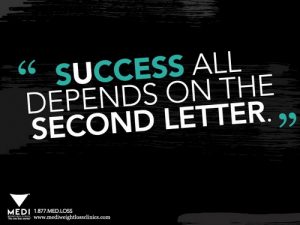5 Learnable Mindsets of Highly Successful People
Have you ever wondered how truly successful people like Bill Gates, Richard Branson or Muhammad Ali became successful and continuedto excel? I sure have. I’ve always been fascinated by what makes people successful.
This was probably because I wasn’t very successful in school. It wasn’t until I discovered and started applying what I learned from competitive sports, biographies and books by Stephen R. Covey and Tony Robbins that things began to turn around for me.
A lot has happened in the 25 years since I nearly flunked out of school. I’ve read hundreds of personal development books, obtained three psychology degrees, and trialed-and-errored my way through my own personal-development journey.
As a psychologist, I’ve assessed and treated everyone from hardened criminals to anxious executives. I now work with athletes, executives, academics and entrepreneurs to help develop their personal and professional potential.
Throughout the last 25 years, I’ve discovered five (learnable) mindsets that set apart the achievers from the rest of the world:
1. Successful people know and accept themselves.
They know their strengths and weaknesses. They accept themselves for who they are and work with or around what they are given.
Think of people like Bill Gates or J.K. Rowling. They accept and work with their introverted personalities. They don’t try to be something they aren’t. If they’d spent their lives fighting against their introversion, we likely wouldn’t be enjoying the fruits of their labors today.
2. Successful people set goals congruent with their personality, values, interests, strengths, skills, mission and purpose. 
Not based on their immediate urges, moods or circumstances.
Martin Luther King Jr., Mother Teresa, Steve Jobs, Nelson Mandela and Oskar Schindler all lived their lives based on who they really were,what they valued, what they were good at and what they realized their mission was. Some of them paid dearly for pursuing their path. But I doubt that any of them would have had it any other way. Friedrich Nietzsche aptly said, “He who has a why to live can bear almost anyhow.”
3. Successful people know they have much more control over the trajectory of their lives than others realize.
At the same time, they know that even though they are steering their ship, they can only control themselves. They understand and accept that they can’t control what the world throws in their path, but they can control how they react to those obstacles. They know that they can anticipate and act before the world acts upon them. They know that if they keep pushing forward they will eventually reach their destination.
4. Successful people accept that they will repeatedly go through tough times.
Tough times are par for the course for those who do big things. They know that’s how the world works and don’t fight or complain about it. Without difficult times and failures, there is no learning, no growth. They know that nothing worth achieving comes without a struggle. They know there’s a difference between suffering and struggling.
The Dalai Lama wrote, “Pain is inevitable. Suffering is optional.” Successful people struggle and feel pain, but don’t suffer because they are living their lives and pursuing goals that are in line with who they are, what they value, and what they believe to be their purpose or mission. To them, it is worth it.
5. Successful people know that once they get to their destination, they will find another.
Because of this, they accept and enjoy the struggle, for they know that the journey is the destination.
To achieve these learnable mindsets, start with these five tips:
-
Learn as much as you can about yourself.
-
Make smart decisions.
-
Act within your control.
-
Reframe setbacks and failures.
-
Be stingy with your time.
Too many people live below their potential. Don’t let one of them be you.
/**
* RECOMMENDED CONFIGURATION VARIABLES: EDIT AND UNCOMMENT THE SECTION BELOW TO INSERT DYNAMIC VALUES FROM YOUR PLATFORM OR CMS.
* LEARN WHY DEFINING THESE VARIABLES IS IMPORTANT: https://disqus.com/admin/universalcode/#configuration-variables*/
/*
var disqus_config = function () {
this.page.url = PAGE_URL; // Replace PAGE_URL with your page’s canonical URL variable
this.page.identifier = PAGE_IDENTIFIER; // Replace PAGE_IDENTIFIER with your page’s unique identifier variable
};
*/
(function() { // DON’T EDIT BELOW THIS LINE
var d = document, s = d.createElement(‘script’);
s.src = ‘//my-blog-17.disqus.com/embed.js’;
s.setAttribute(‘data-timestamp’, +new Date());
(d.head || d.body).appendChild(s);
})();
Please enable JavaScript to view the comments powered by Disqus.
Latest posts by TJ Addis (Posts)
- HomeSuccessPro Marketing System - March 13, 2017
- MASSIVE TRAFFIC FREE Guaranteed Visitors for YOU. AMAZING! - March 1, 2017
- 5 Learnable Mindsets of Highly Successful People - February 24, 2017
- Lost Secret Will Make Your Prepping Equipment Obsolete in Two Months - February 23, 2017
- Leaked Secret Reveals How To Bring Any Dead Battery Back To Life Again – Just Like New - February 23, 2017

